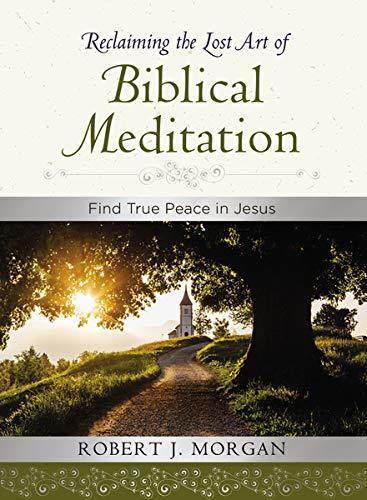Spiritual Disciplines: What is Biblical Meditation?
Throughout the Scriptures we are told to meditate. Yet most of us would have a difficult time defining what meditation is and what it might look like in daily life. A basic definition of mediation is to ponder or contemplate. These are both skills not widely valued in today’s efficient and task-focused culture. Beyond defining meditation is the question of what to meditate on? Take a moment to consider the following verses and how they provide guidance about what to meditate on and what it might mean to meditate.
Psalms 1:2 “But his delight is in the law of the Lord; and in his law doth he meditate day and night.”
Psalms 104:33-34 “I will sing unto the Lord as long as I live: I will sing praise to my God while I have my being. My meditation of him shall be sweet: I will be glad in the Lord.”
Psalms 143:5 “I remember the days of old; I meditate on all thy works; I muse on the work of thy hands.”
Psalm 1:2 encourages us to meditate on the law or the Scriptures. There is a beautiful cycle in Psalm 1 of the righteous delighting in the Scriptures, pondering them and a fruitful life. Meditation as seen by Psalms 104:33-34 and 143:5 goes beyond pondering the Scriptures and encourages meditation on God. Eastern meditation focuses on emptying the mind because it believes truth is within us. Biblical meditation focuses on filling the mind because the truth is outside us. Biblical meditation is grounded in the Scriptures and from the Scriptures we can ponder such things as God, who he is, his attributes, what he has done and so on. Meditating on the truths contained in Scripture brings clarity and complexity to our picture of God and a sense of wonder to engage the world with.
Meditating on the Scriptures (Psalms 1:2) is like slowing down to enjoy the taste and texture of food rather than just eating because it is necessary for survival. With food we get the same nutritional nourishment from the food no matter how we ingest it. With Scripture it is not so. While there is benefit from reading the Scriptures without slowing down to consider the taste and texture of the passage, it will have minimal impact on our heart, mind, and life without meditation.
Discussion Questions:
- How would you define biblical meditation?
- What is good for the believer to meditate on?
- What are barriers to meditating for you?
- What do you believe it means for meditation to be grounded in the scriptures?
- What are realistic goals for you this week regarding meditation? (duration, frequency, topics)
Scriptures to Consider: Psalm 1, Proverbs 3:1-13, Isaiah 1:10-20, Philippians 4:8
To view the full PDF version, click here.
Further Information:
 Reclaiming the Lost Art of Biblical Meditation: Find True Peace in Jesus
Reclaiming the Lost Art of Biblical Meditation: Find True Peace in Jesus ![]()
Author: Robert Morgan
Pastor Robert Morgan leads us through a journey into biblical meditation, which, he says, is thinking Scripture—not just reading Scripture or studying Scripture or even thinking about Scripture—but thinking Scripture, contemplating, visualizing, and personifying the precious truths God has given us.
 Spiritual Disciplines for the Christian Life
Spiritual Disciplines for the Christian Life ![]()
Author: Donald Whitney
This 352-page book drawn from a rich heritage will guide you through a carefully selected array of disciplines. By illustrating why the disciplines are important, showing how each one will help you grow in godliness, and offering practical suggestions for cultivating them.
Scriptural Meditation [ACCFS]





Comments
Leave a Comment